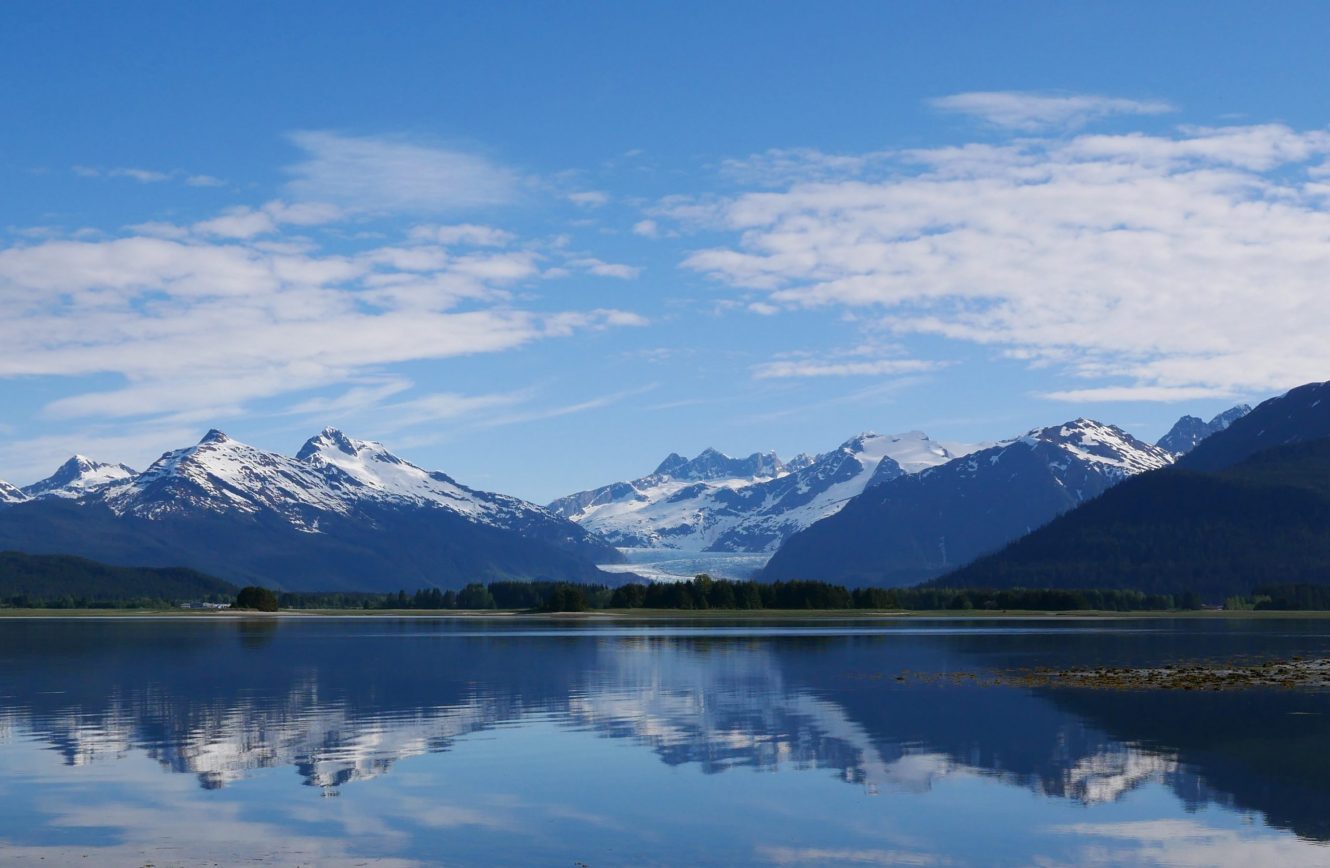Most airplanes landing in Juneau pass by the Mendenhall Glacier with landing wheels extended. In this time of Covid, passengers flying from outside the state have to submit to testing and live quarantined until test results arrive. Government experts are expecting a new, post Thanksgiving rise in Corvid cases in our state, increasing stress on our frontline medical workers.
All this reminds me of a walk I took on the Mendenhall River wetlands last Spring, just after the state imposed the first set of Covid testing and quarantine protocols. During the walk, I watched the Alaska Airlines’ morning flight from Seattle fly past the glacier, knowing that most of the passengers would be tested for the virus before going into quarantine at home. Then, I had a Annie Dillard-like interchange with a pine siskin after it locked on to me with a stare. Soon after, I recorded this attached essay about the experience.
Keep safe and Covid free.
A Mirror, Not a Portal
I wanted be out on the wetlands for first light. It makes the best shadows, deepens the colors of frost-covered grass. But my dog needed her breakfast and me my morning coffee. It’s still early in the day when the dog and I finally arrive. Skims of ice soften the reflections off the river. Frost feathers decorate stubs of grass and the still frozen trail mud.
We are the first to stumble onto a flock of nibbling Canada geese. The birds try to ignore us. Unfortunately, they have staked out the trail as part of their feeding ground. They fly off in twos and threes when I try to sidle around them.
I want to see the owls again. Two short-eared owls hunted the wetlands the last time we walked along this part of the Mendenhall River. If not them, we might see one of the first flights of northbound swans. But there are only ducks and the now nattering geese. One eagle does a high fly over but sees nothing worth diving on.
The trail deteriorates as we walk, softening under the rising sun. We drop off the meadow to walk along the river beach. An ebb tide has reduced the river to a narrow stream, but it is wide enough to reflect the glacier and the sawtooth peaks that frame it. The beauty of it should be enough to satisfy. But I am disappointed not to see the owls.
As I try to measure ice loss on the glacier, the Alaska Airlines jet from Seattle photobombs our view of it. Anyone that deplanes from the jet will have to go home and stay there in isolation for the next two weeks.
Feeling the need for another coffee at our own covid quarantine zone, I try to rush the dog toward the car. She keeps up and then passes me when I stop to watch a flock of pine siskins party among the limbs of an alder tree. One of the tiny birds settles on the nearest limb and studies me, tilting his head to get a clearer view. I don’t know why the siskin stares at me rather than rejoining its flock. Is he assured that I could never match his speed? I’d like to believe that the bird senses a kind soul in my clumsy, aging body. I’ll never know. The eye he presents to me is a hard mirror reflecting the morning sunlight, not a portal.
I think about the soul gaze with a weasel that Annie Dillard describes in “Living with Weasels.” Dillard was plugged into the weasel’s brain for sixty seconds after tumbling through the black holes of its eyes. She believed that the animal spent the same amount of time in her brain. Did my siskin poke around in mine?
In her essay, Dillard wrote that she wanted to live like the weasel: “open to time and death painlessly, noticing everything, remembering nothing, choosing the given with a fierce and pointed will.” I think of the people deplaning from the Seattle jet. They, like the rest of us trying to avoid catching the corona virus, are not wired to live open to time and death. But we can dull our anxieties by spending time outside noticing everything. Unlike Dillard’s weasel, we can remember and we can love. Like the animal, we can move forward with a fierce and pointed will.

